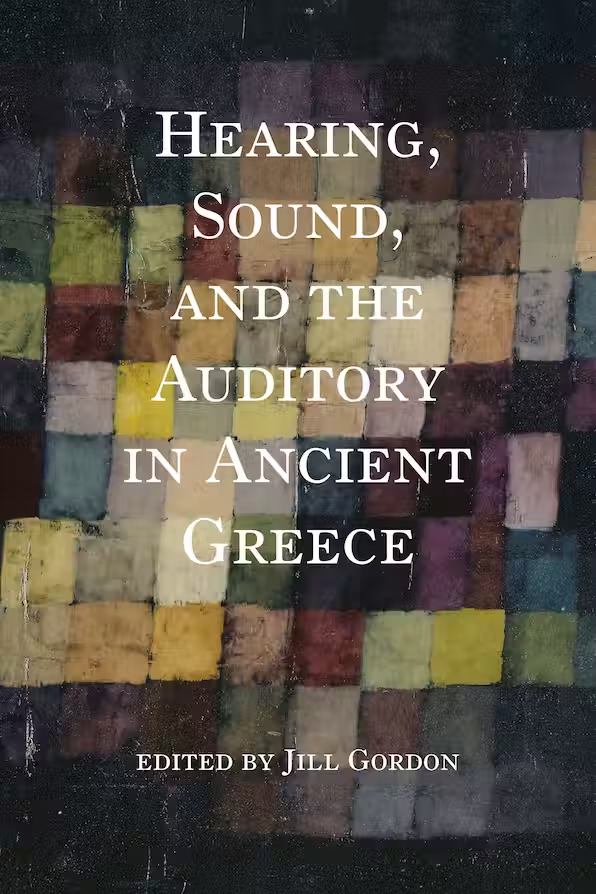
Dirigé par Jill Gordon, ce volume collectif rassemble quinze contributions explorant la manière dont l’expérience auditive a été décrite par les philosophes et poètes de l’Antiquité grecque au sens large, d’Héraclite à Plutarque, en passant par Empédocle, Sophocle ou les poètes lyriques, et bien sûr par Platon et Aristote, auxquels sont consacrés respectivement six et trois articles. S’inscrivant dans le champ des sound studies, l’ouvrage entend rectifier la perspective « vidéocentrique » dominante dans la philosophie occidentale moderne et mettre en valeur l’importance des sons, de la voix et de l’audition dans la culture grecque ancienne, à commencer par la philosophie et la poésie, mais aussi dans la politique, la morale ou l’éducation. L’ensemble est structuré en quatre parties : « Listening to the Logoi », qui réévalue la centralité du logos dans la philosophie ancienne ; « Sound Education », qui souligne l’importance de l’apprentissage de l’écoute dans l’acquisition de la vertu ; « Sound Politics », qui analyse la manière dont l’audition contribue aux différentes facultés politiques ; « Alogos, Embodiment, and Silence », qui étudie les interactions entre la parole et les bruits inarticulés ou du silence dans la puissance de signification d’un corps. Chaque contribution est accompagnée d’une bibliographie et un index général figure en fin de volume.
L. M.
Edited by Jill Gordon, this collective volume brings together fifteen contributions exploring the way in which the auditory experience was described by the philosophers and poets of Greek antiquity in the broadest sense from Heraclitus to Plutarch, via Empedocles, Sophocles and the lyric poets, and of course Plato and Aristotle, to whom six and three articles are devoted respectively. As part of the field of sound studies, the book aims to rectify the dominant 'videocentric' perspective in modern Western philosophy and to highlight the importance of sound, voice and hearing in ancient Greek culture, starting with philosophy and poetry, but also in politics, morality and education. The book is divided into four parts: 'Listening to the Logoi', which reassesses the centrality of logos in ancient philosophy; 'Sound Education', which stresses the importance of learning to listen in the acquisition of virtue; 'Sound Politics', which analyses the way in which hearing contributes to the various political faculties; and 'Alogos, Embodiment, and Silence', which examines the interactions between speech and inarticulate noises or silence in the signifying power of a body. Each contribution is accompanied by a bibliography, and a general index appears at the end of the volume.
L. M.

De : Drew A. HYLAND
Pages 3 à 20

De : Michael M. SHAW
Pages 21 à 58

De : Michael NAAS
Pages 59 à 81

De : Eve RABINOFF
Pages 82 à 110

De : Sean Alexander GURD
Pages 111 à 140

De : Jessica E. DECKER
Pages 143 à 167

De : Shane M. EWEGEN
Pages 168 à 187

De : Ryan T. DRAKE
Pages 186 à 208

De : Jill GORDON
Pages 211 à 244

De : I-Kai JENG
Pages 245 à 270

De : Sara BRILL
Pages 271 à 294

De : Rebecca S. GOLDNER
Pages 297 à 310

De : Chris MCLAIN, Anne-Marie SCHULTZ
Pages 311 à 333

De : James BARRETT
Pages 334 à 368

De : Jeremy BELL
Pages 369 à 394